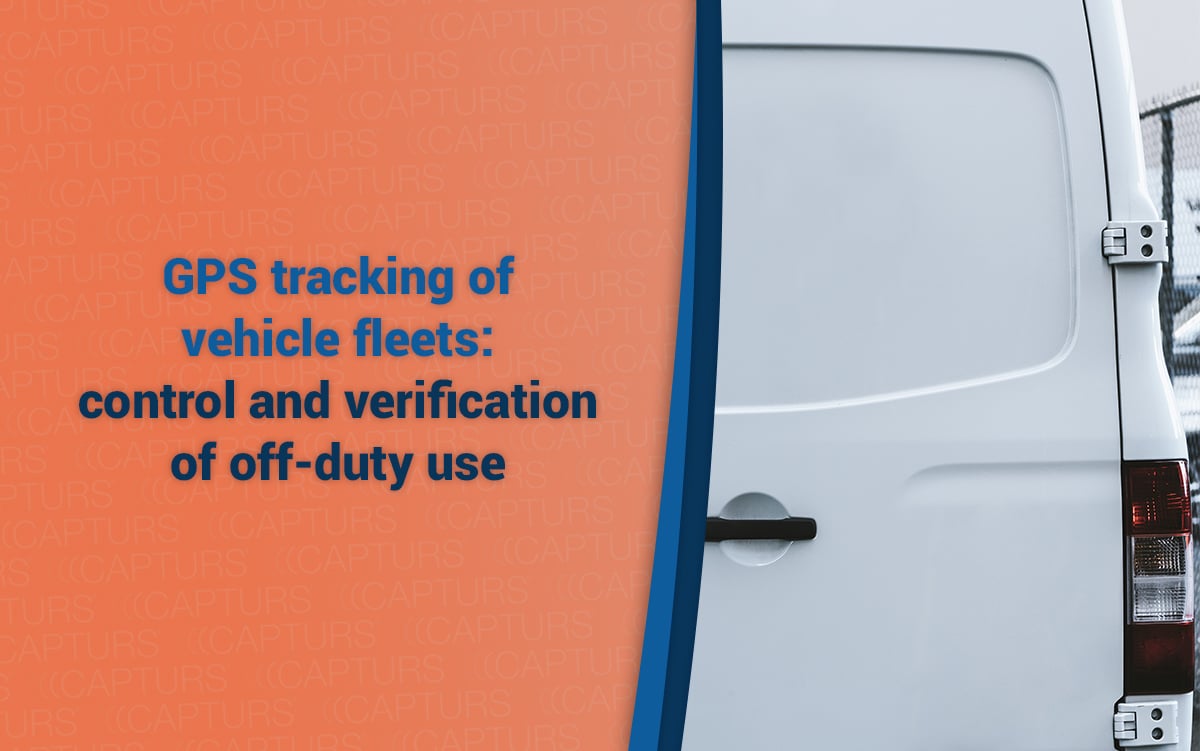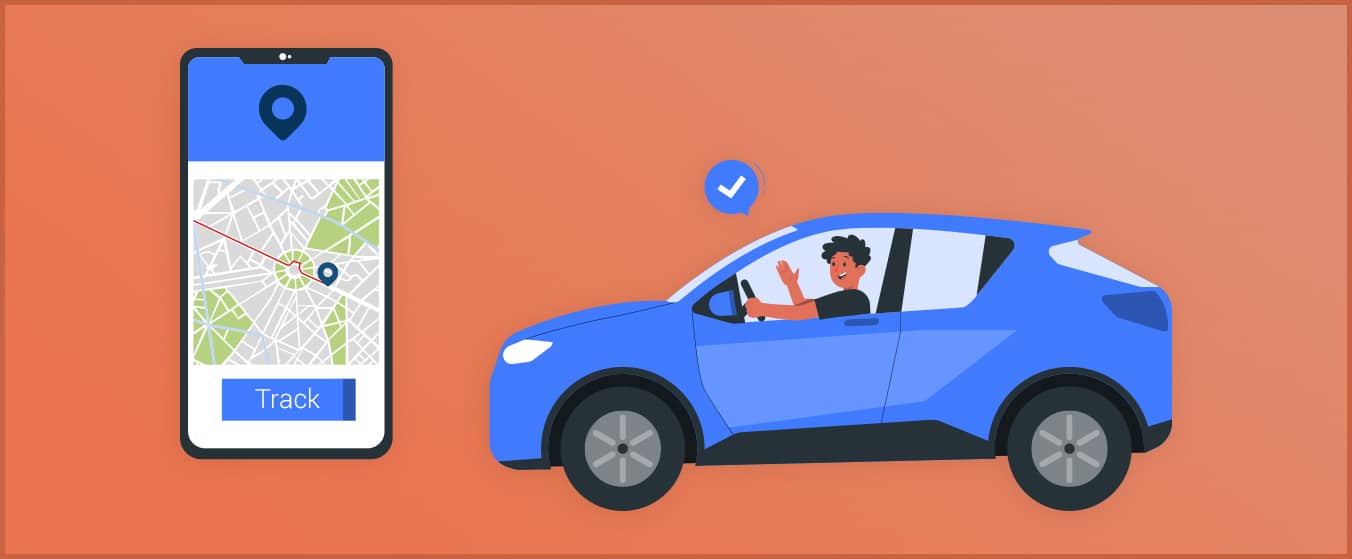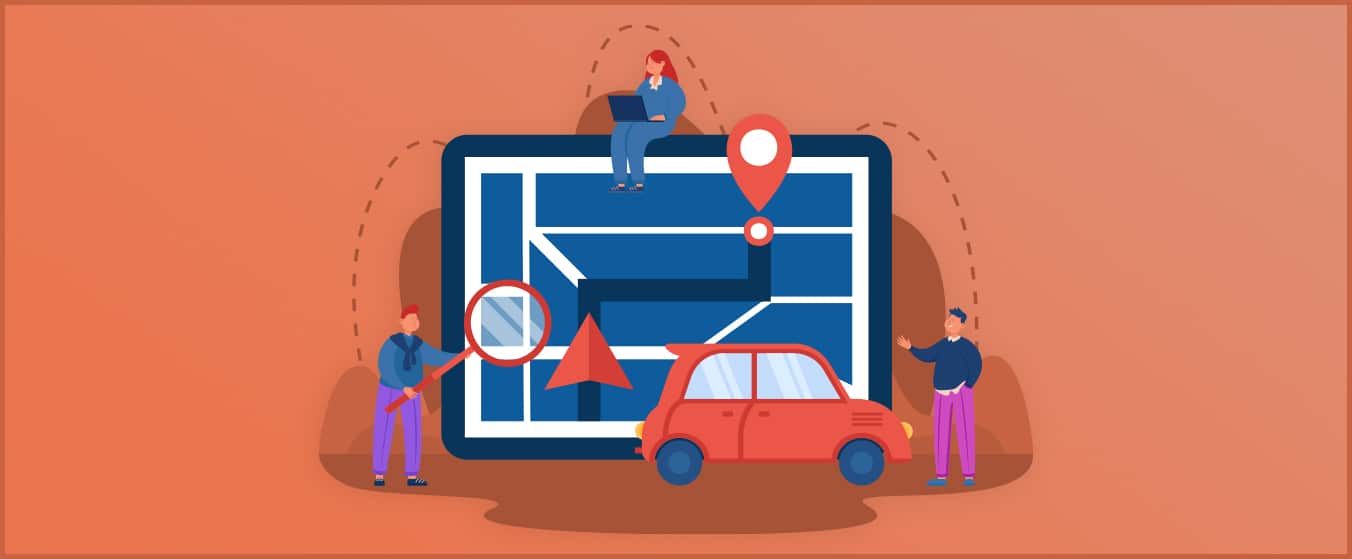GPS tracking of vehicle fleets: control and verification of off-duty use

Monitoring vehicle usage hours is crucial for companies with a fleet of vehicles in order to monitor the fleet as efficiently as possible. This ensures that vehicles are only used during working hours and optimizes their use. The use of GPS trackers is an effective way to monitor vehicle usage hours. GPS trackers allow for real-time tracking of vehicle movements and the retention of trip histories. This allows companies to verify that vehicles are not being used off-duty and take appropriate action if this is found.
This article will focus on the use of GPS trackers to monitor vehicle usage times and the benefits and limitations of this approach.
GPS trackers to monitor the hours of use of vehicles
Overview of the different types of GPS trackers available for time-of-use monitoring
There are different types of GPS trackers available on the market for monitoring vehicle usage hours. The main types are the following:
In-vehicle GPS trackers: These trackers are installed directly in vehicles and communicate real-time location information to monitoring systems. They can also include features such as motion detection, driving analysis and fault detection.
Handheld GPS trackers: These trackers are typically used to track the movements of drivers or employees who frequently travel outside company vehicles. They are generally smaller and can be attached to a belt or backpack.
Satellite tracking GPS trackers: These trackers use satellites to communicate location information and can be used to track vehicles in remote or hard-to-reach areas.
GPS tracking software: There is also GPS tracking software that can be used in conjunction with smartphones or tablets to track employee movements. This software can be configured to send alerts if vehicles are used outside of work hours. These geolocation software programs typically offer a highly developed trajectory history.
It is important to choose the type of GPS tracker that best suits the company’s needs based on the size of its fleet of vehicles, the area of coverage needed and the functionality required.

Features offered by GPS trackers for time-of-use monitoring (real-time tracking, trip history, etc.)
GPS trackers offer many features for monitoring vehicle hours of use. The most common features are as follows:
Real-Time Tracking: GPS trackers allow for real-time tracking of vehicle movements and retention of trip history. This allows companies to verify that vehicles are not being used off-duty and take appropriate action if this is found.
Trip History: GPS trackers record vehicle trip history, including departure and arrival information, the duration of each trip and the distance traveled. This allows companies to track vehicle usage over time.
Driving analysis: Some GPS trackers include driving analysis features, such as detection of hard acceleration, hard braking and sharp turns. This allows companies to monitor drivers and implement training programs to improve safe driving.
Off-duty alerts: GPS trackers can be configured to send alerts when vehicles are used off-duty. This allows companies to respond quickly to unauthorized vehicle use.
Geofencing: GPS trackers can be configured to trigger alerts when vehicles enter or leave a defined geographical area. This allows companies to monitor vehicles in specific areas or trigger alerts for unauthorized vehicle use in restricted areas.
These features allow companies to effectively monitor vehicle usage hours, optimize vehicle utilization and reduce fleet operating costs.

The benefits of monitoring vehicle hours of use with GPS trackers
Improved management of operating costs
Monitoring vehicle usage hours with GPS trackers has many advantages for companies, especially in terms of managing operating costs. The most important benefits are as follows:
Optimization of vehicle utilization: By monitoring vehicle usage hours with GPS trackers, companies can optimize the use of their vehicle fleet. This reduces operating costs by preventing unauthorized vehicle use and maximizing hours of use.
Reduce maintenance costs: Monitoring vehicle usage hours with GPS trackers can reduce vehicle maintenance costs. By tracking vehicle routes and hours of use, companies can plan for preventive maintenance and necessary repairs, thereby reducing maintenance costs.
Improved road safety: By monitoring vehicle usage hours with GPS trackers, companies can improve road safety. GPS trackers allow companies to track vehicle trips and hours of use, which in turn allows companies to implement training programs to improve safe driving.
Improved productivity: By monitoring vehicle usage hours with GPS trackers, companies can improve employee productivity and efficiency. GPS trackers can track vehicle routes and hours of use, allowing companies to plan tasks efficiently.
Decrease the risk of theft: GPS trackers provide real-time vehicle location, allowing companies to react quickly to theft and recover stolen vehicles more quickly.
By using GPS trackers to monitor vehicle usage hours, companies can significantly improve their management of fleet operating costs, while improving road safety and productivity.
Better use of resources
Monitoring vehicle usage hours with GPS trackers allows companies to better utilize their resources by providing the following benefits:
Real-time Vehicle Tracking: GPS trackers provide real-time tracking of vehicle locations, allowing companies to better plan tasks and routes for optimal vehicle utilization.
Better task planning: With real-time visibility into vehicle usage, companies can plan tasks efficiently and use vehicles optimally, without wasting time and resources.
Identify unnecessary tasks: GPS trackers allow companies to track vehicle routes and hours of use, allowing them to identify unnecessary tasks and eliminate them for more efficient use of resources.
Better inventory management: GPS trackers allow companies to track vehicle deliveries and returns in real time, enabling better inventory management and optimal resource utilization.
Employee tracking: GPS trackers allow companies to track employee vehicle usage hours, ensuring that employees are using vehicles responsibly and efficiently, without wasting resources.
By using GPS trackers to monitor vehicle usage hours, companies can better utilize their resources by improving job scheduling, identifying unnecessary tasks, improving inventory management and tracking employees.

The limits of monitoring vehicle hours of use with GPS trackers
Need to protect the privacy of drivers
The monitoring of vehicle hours of use with GPS trackers also has certain limitations, especially with regard to the privacy of drivers. The following limitations can be mentioned:
Privacy: GPS trackers allow companies to track vehicle locations and trips in real time, which can pose privacy concerns for drivers. It is therefore important to ensure that companies comply with privacy laws and regulations. For example, calculating work time with GPS trackers is possible, but no other means must already be in place by the company.
Employee consent: It is important that employees give their consent to the use of GPS trackers in company vehicles in order to respect their privacy. Employees should be informed of the purposes of the monitoring and their privacy rights.
Data Use: Companies must ensure that they use the data collected by GPS trackers only for business purposes and do not use it for illegal or abusive purposes.
Data Security: Companies must ensure that data collected by GPS trackers is protected from unauthorized access and data leakage.
Regulations: It is important to research the regulations in your country or region to ensure compliance with laws and regulations regarding GPS time-of-use monitoring and privacy.
In conclusion, GPS time-of-use monitoring is an effective tool for businesses, but it is important to respect the limits of driver privacy by complying with applicable laws and regulations, obtaining employee consent, and using the data in a responsible and secure manner.
Need to manage exceptions (e.g. travel time, etc.)
Travel time can be considered as working time, and therefore should be taken into account when monitoring hours of use. The same is true for calculating attendance in an area or punctuality for appointments.
Vehicles may be used for business purposes outside of work hours, and these uses should be considered legitimate.
It is important to have rules and procedures in place to manage these exceptions effectively and fairly.
GPS trackers can collect data about drivers’ movements, including location and time information.
It is important to have policies and procedures in place to protect driver privacy in accordance with applicable laws and regulations.
It is also important to educate drivers about the use of GPS trackers and their privacy rights.

